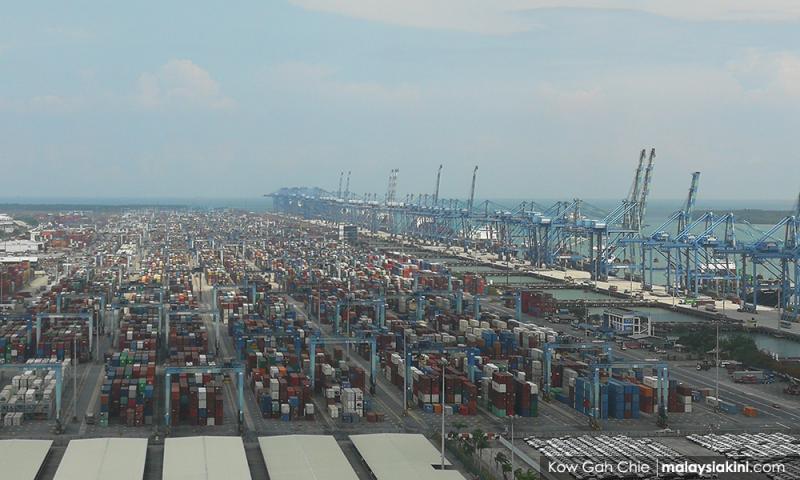Economist: Diversified export market 'antidote' against virus impact
CORONAVIRUS | Malaysia’s diversified export market serves as a huge advantage for the country in minimising the impact of slower demand expected from
China following the novel coronavirus outbreak.
Sunway University Business School economics professor Yeah Kim Leng
said all trading countries, including Malaysia, was feeling the
pinch but the impact would be at a different level, given China’s big
exposure to global trade.
“Although China is Malaysia’s largest trading partner, our exports to
other countries such as the United States and European nations are
still at the same growth (rate). Our diversified export (market) will
help cushion the impact,” he told Bernama.
In 2018, China exported US$1.71 trillion (RM7 trillion) and imported
US$1.97 trillion (RM8.1 trillion) in goods to the global market.
Yeah said the previous epidemics in China had been contained and had minimal impact on the economy, except for the severe acute respiratory syndrome (SARS) which had affected its gross domestic product by between 0.1 and 0.2 per cent.
He said the current infection rate of coronavirus has reached
the same scale of SARS, thus creating concerns that it might
take some time for the Chinese government to contain the spread of the
outbreak.
As at this news report, there were 17,389 confirmed cases, of which
17,206 are in China. Total recovery cases stood at 487, while the death toll is at
362. Malaysia has eight confirmed cases, all of which are Chinese
nationals.
There is a risk of businesses closure, as well as shut down of (more)
towns, which could curb economic activities and lead to a slowdown in
the Chinese economy, Yeah said.
He added that many economists were expecting up to 0.2 percentage points
to be cut off from the expected growth of China’s first-quarter
performance.
“At this juncture, given the strong measures taken by the Chinese
government, the concern is more on managing the spread," he said.
“If we can contain (the outbreak) within China, then the impact on the
rest of the world is not so severe, and the global economy can still
achieve the expected rise for this year,” the professor said.
Yeah said China should revise its growth projection
should the outbreak prolongs until the next quarter.
“If the outbreak enters the second quarter, the whole world needs to
be worry,” he stressed.
China has injected US$173 billion (RM711 billion) into its economy to cushion the
impact on financial markets as it reopens after the week-long Lunar
New Year holidays.
As for Malaysia, he said the government could consider introducing a
fiscal stimulus package to boost the economy.
However, that should only be on the table towards the second half of
the year to see how the first half has performed, he said.
“What is important is that our domestic sources are growing,
infrastructure spending increases, commodities prices are firm and
employment rate is stable to support domestic spending.
“If (the virus) prolongs, then the government needs to spend more and
relax the fiscal deficit constraint from the 3.2 percent target for
this year to maybe slightly higher between 3.3 or 3.4 percent to
boost the domestic economy,” he said.
Last week, Finance Minister Lim Guan Eng announced that the government
was evaluating the need for an economic stimulus package and is ready
to launch measures to deal with the effects of the coronavirus
outbreak, if necessary.
Lim had said it was too early for the government to take the action as
it needs to study and analyse the extent of its impact.
For now, he said it is important to focus and support the efforts and
measures taken by the Health Ministry to keep the people safe and
free from the virus.
The novel coronavirus was first detected in last December in Wuhan,
China, causing pneumonia and symptoms such as fever, cough and
breathing difficulties. — Bernama
RM12.50 / month
- Unlimited access to award-winning journalism
- Comment and share your opinions on all our articles
- Gift interesting stories to your friends
- Tax deductable

 Bernama
Bernama